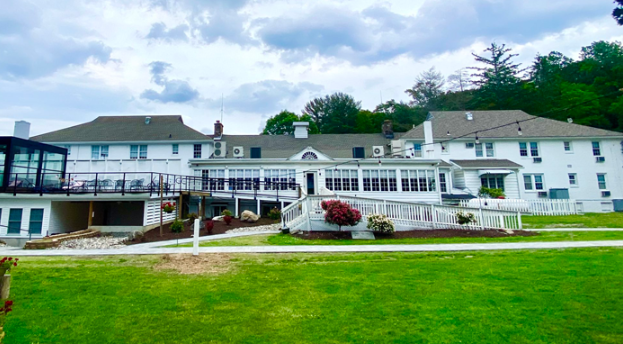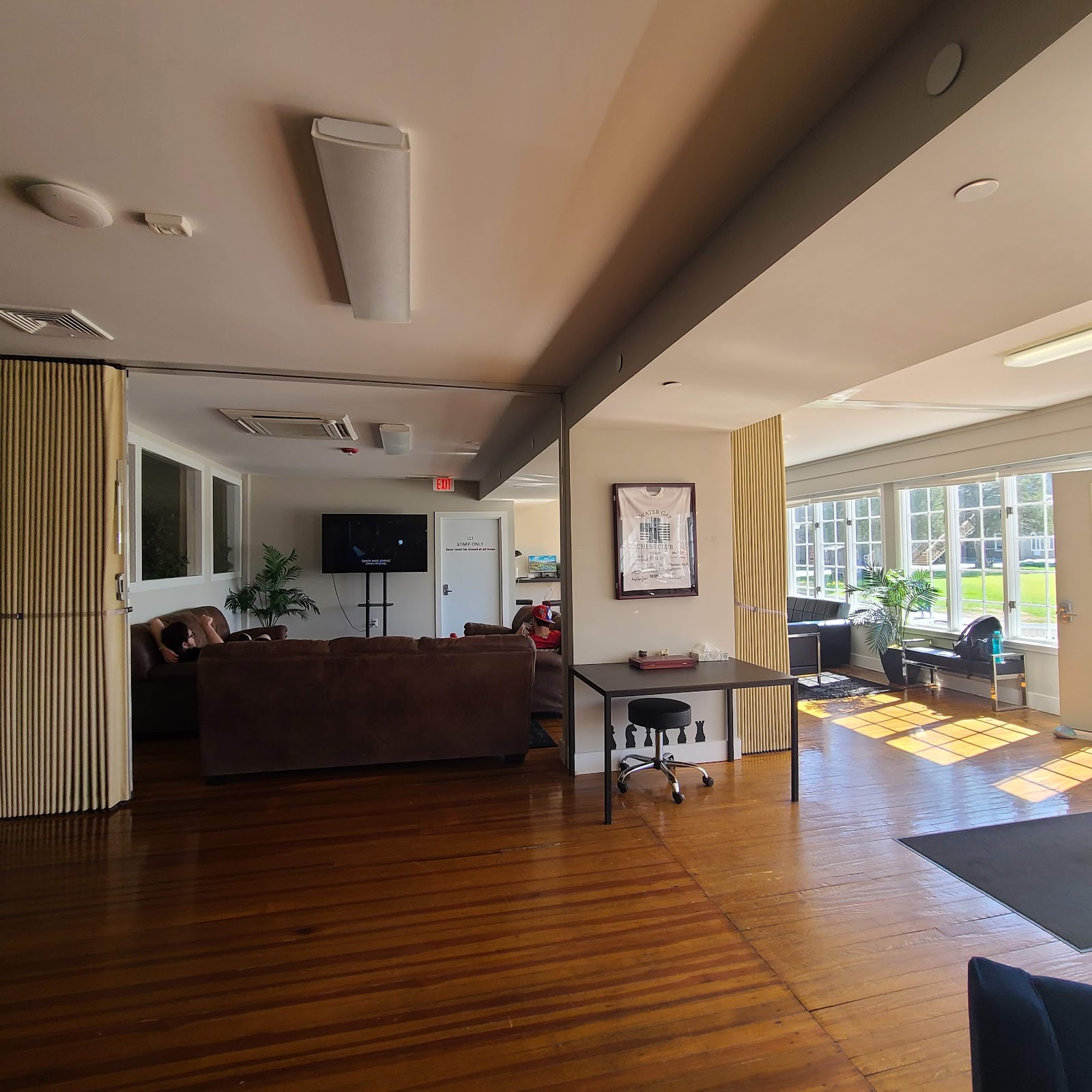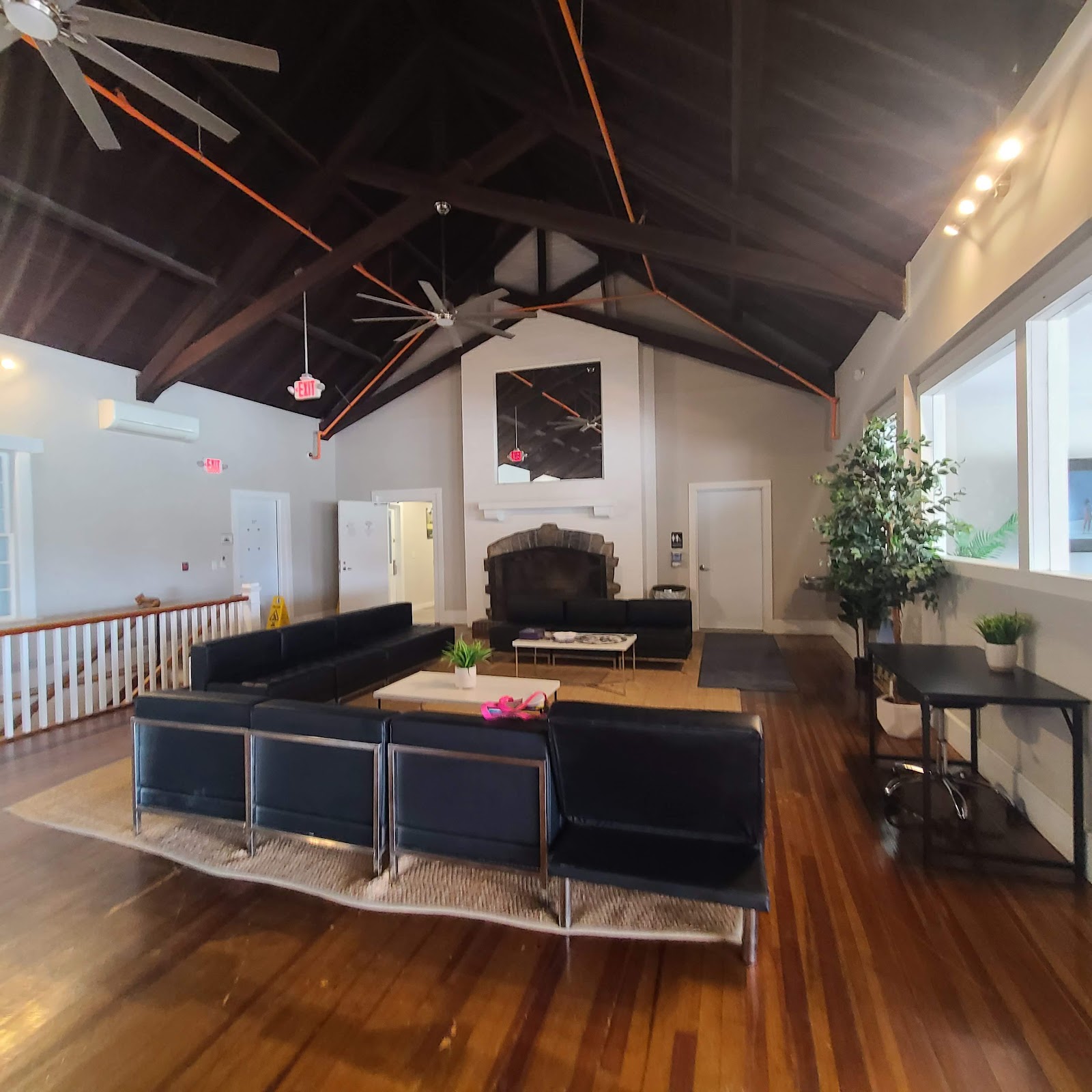Water Gap Wellness
Overview
Water Gap Wellness, located in Delaware Water Gap, Pennsylvania, specializes in the treatment of mental health and substance abuse. Their acclaimed Wellness Approach to Healing is designed to restore balance and re-calibrate the mind, body, and spirit through a combination of masterfully planned clinical sessions and adventure experiences. The facility offers a continuum of care, including a Partial Hospitalization Program (PHP) with housing and a forthcoming full Detox and Residential program.
The programs at Water Gap Wellness Center are led by renowned Psychiatrist Dr. Robert Morrow, a pioneer in Medical Assisted Therapy (MAT) in the Pocono Mountain region. Dr. Morrow, who has dedicated his life to treating individuals suffering from mental health and substance use disorders, oversees each client's treatment plan. Set atop the rolling mountains of Pennsylvania, the center provides an escape filled with tranquility and calm, free from the hustle and bustle of everyday life. Each room offers picturesque backdrops of rolling hills and mountain vistas, and the 100+ acres of beautifully manicured property provide a perfect retreat for individuals to heal and continue their wellness journey.
The property features a private 9-hole golf course, disc golf, biking, hiking, and running trails. Being directly adjacent to the Appalachian Trail and Delaware River, clients have the opportunity to fully engage in the beauty of nature. Various levels of care are available depending on where clients are in their recovery journey, incorporating both clinical aspects and experiential activities. The programs include the 12-step program, SMART Recovery, Refuge Recovery, and a comprehensive clinical DBT program. Additionally, the program encompasses all aspects of wellness, from delicious and nutritious meals to exercise, yoga, acupuncture, community volunteerism, outdoor activities, art, music, and more.
The staff at Water Gap Wellness is passionate about each guest’s wellness journey. Master's level clinicians bring years of experience and expertise, and many staff members have personal recovery stories, enabling them to relate on many levels with the guests. The facility offers an iconic setting at the Water Gap Country Club, located on the Appalachian Trail and the Delaware Water Gap National Recreation Area, right next to the Delaware River. The Detox and Residential facility boasts 50 beds, an executive chef, premier amenities, and recreational activities such as golf, frisbee golf, hiking, biking, rafting, jogging trails, and a fitness center.
In addition to residential plans, Water Gap Wellness offers a Partial Hospitalization Program that includes hotel accommodations, providing an option for clients who feel a residential plan is too encompassing. The programs provide a truly unique experience, benefiting from accredited and expert substance use and mental health programs to exceptional housing options at the Water Gap Wellness Inn. Clients enjoy a comprehensive structured level of step-down support that fosters a transition to a more independent lifestyle.
The holistic approach at Water Gap Wellness is designed to restore balance and re-calibrate the mind, body, and spirit through evidence-based therapies and individualized treatment planning. Programs are licensed by the Pennsylvania Department of Human Services and the Drug and Alcohol Programs of Pennsylvania. They offer an on-site psychiatrist five days a week, two one-on-one sessions weekly with masters-level clinicians, daily group therapy, relapse prevention through exposure therapy, and recreational activities led by a NOLS-certified instructor. The curriculum incorporates wellness into every aspect of programming, treating the person rather than the diagnosis and helping people learn healthy coping skills to move forward into healthy daily living patterns.
Water Gap Wellness holds a state license from Pennsylvania, ensuring high standards of care and compliance with regulatory requirements.
Water Gap Wellness at a Glance
Payment Options
- Cash or self-payment
- Private health insurance
- Self-pay options
Assessments
- Comprehensive mental health assessment
- Comprehensive substance use assessment
Age Groups
- Adults
Operation
- Private for-profit organization
Accreditations
State department of health:

Government agencies issue State Licenses, granting rehabilitation organizations permission to operate their businesses legally within specific geographic regions. The licenses needed for legal operation are typically determined by the type of rehabilitation program offered by a facility and its physical location.
Registration: 457055
Treatment At Water Gap Wellness

Conditions Treated
Mental health treatment:
Mental health treatment provides a safe and structured environment where individuals can receive professional care and support for their mental health challenges. Within the facility, trained therapists, counselors, and medical staff work together to create personalized treatment plans tailored to each person's needs. Patients might participate in a variety of therapies, including individual counseling, group therapy, and possibly medication management. The goal is to equip individuals with the tools and strategies they need to cope with their conditions and lead fulfilling lives.
Substance use treatment:
Substance use rehabilitation represents a holistic treatment strategy tailored to aid individuals grappling with drug or alcohol addiction. This comprehensive rehabilitation method encompasses two key aspects: first, addressing the physical dependency, often commencing with detoxification, and second, tackling the psychological triggers through a range of therapeutic techniques. The ultimate aim is to empower individuals to attain and sustain sobriety while providing them with the necessary skills and coping mechanisms to successfully reintegrate into society and lead a life free from substance abuse.
Co-occurring Disorders:
Dual-diagnosis rehabilitation centers specialize in the treatment of individuals who suffer from a co-occurring mental health disorder and a substance use disorder. This complex interplay between addiction and mental health can make recovery more challenging, as each condition may exacerbate the symptoms of the other. Dual-diagnosis rehabilitation centers offer an integrated approach that addresses both issues simultaneously and often includes a comprehensive assessment for an Integrated Treatment Approach through Holistic Therapies, including family therapy and aftercare treatment.
Alcoholism:
Alcohol addiction is a condition where a person's brain gets used to having alcohol, making it hard for them to control their drinking. This can lead to feeling down, acting without thinking, wanting alcohol strongly, and feeling sick if they don't drink. To help with this, treatment programs are available. These usually include a guided process to safely stop drinking, talking with professionals to work through problems, and joining support groups with others facing similar issues. While these treatments can't fully cure the addiction, they provide tools and support to help individuals live a better life and keep their drinking under control.
Opioid Treatement:
Opioid addiction rehabilitation is a specialized treatment process tailored to address the unique challenges and complexities of opioid dependence, including drugs like heroin and prescriptions like oxycodone. The process typically begins with a medical detox to ease withdrawal symptoms, followed by therapeutic interventions to address the root causes of addiction. This holistic approach aims to provide individuals with the skills and support needed for long-term recovery from opioid use.

Levels Of Care
Luxury Treatment:
Luxury rehab centers provide a premium and comfortable setting for individuals seeking addiction recovery and mental health treatment. Offering personalized care, serene surroundings, and amenities like spa treatments and gourmet dining, they blend expert support with a luxurious experience for holistic healing.
Outpatient:
Outpatient programs cater to individuals who are in good medical condition and are not at a heightened risk of relapse, including those who have successfully finished their inpatient treatment. These programs usually build upon clients' existing treatment strategies, providing ongoing addiction counseling and educational support for recovery. Individuals who enter outpatient care right after detoxification may also undergo medical and psychological evaluations, followed by the creation of personalized treatment plans. Most outpatient rehabilitation centers offer various levels of care tailored to meet each client's specific needs.
Hospital inpatient treatment:
Inpatient treatment involves a comprehensive residential therapeutic program where patients stay on-site for a duration typically ranging from 30 to 90 days. This immersive environment offers structured support, ensuring safety and a focus on recovery. Therapies provided include individual and group counseling, cognitive-behavioral therapy, holistic treatments, family therapy sessions, and experiential therapies. The aim is to address addiction or mental health disorders' physical, emotional, and psychological aspects, laying a robust foundation for sustained healing.
Detoxification:
Drug and alcohol addiction often takes a heavy toll on one's body. Over time, a physical dependence can develop, meaning the body physiologically needs the substance to function. Detox is the process of removing drugs and/or alcohol from the body, a process that can be lethal if mismanaged. Medical detox is done by licensed medical professionals who monitor vital signs and keep you safe, healthy, and as comfortable as possible as you go through detox and withdrawal. The length of stay at the detoxification program is determined according to the specific needs of the patient.
Hospital inpatient detoxification:
Hospital Inpatient Detoxification offers a specialized medical intervention tailored for individuals navigating the challenging process of withdrawal from addictive substances, including alcohol and drugs. Central to its design is the provision of 24/7 medical oversight by a team of interdisciplinary professionals to address any emergent complications and ensure patient safety during the critical detox phase.
Outpatient detoxification:
Outpatient Detoxification refers to a medical process where individuals with substance dependence are systematically and safely withdrawn from those substances under medical supervision, while not being admitted to a hospital or inpatient facility. This approach allows patients to detoxify from drugs or alcohol in a less restrictive environment, often enabling them to maintain certain daily responsibilities such as work or family commitments. Close monitoring, medications, counseling, and support are provided to manage withdrawal symptoms and prevent complications.

Treatment Modalities
Cognitive Behavioral Therapy:
Cognitive Behavioral Therapy (CBT) is a evidence-based psychotherapeutic approach that aims to address dysfunctional emotions, behaviors, and cognitions through a goal-oriented, systematic process. It involves identifying and challenging negative thought patterns and beliefs and replacing them with more constructive ways of thinking and behaving. CBT is commonly used to treat a variety of mental health disorders, including depression, anxiety, and phobias.
Dialectical Behavior Therapy:
Dialectical Behavior Therapy (DBT) is a form of psychotherapy that blends cognitive-behavioral approaches with mindfulness strategies. It is particularly effective in treating addiction, as it addresses the underlying emotional pain and destructive behaviors that often accompany substance misuse. Through enhancing emotional regulation, distress tolerance, interpersonal effectiveness, and mindfulness, DBT equips individuals with the coping skills necessary to maintain sobriety and improve their overall quality of life.
Experiential Therapy:
Experiential Therapy is a therapeutic approach that emphasizes direct experience and active client involvement to gain insight into unresolved issues and trauma. Through guided activities, role-playing, and other interactive techniques, clients are encouraged to confront and explore their emotions in the present moment, leading to a deeper understanding and resolution of their challenges. This therapy is rooted in the belief that transformative change occurs through meaningful experiences.
Motivational Interviewing:
Motivational Interviewing (MI) in addiction treatment is a client-centered counseling style aimed at promoting behavior change by helping clients explore and resolve ambivalence. Through empathetic engagement and evoking change talk, MI empowers individuals to harness their own motivation to overcome addiction, leading to a self-directed path to recovery. This approach respects individual autonomy while supporting positive change in a compassionate, non-confrontational manner.
Individual counseling:
In individual therapy, a person engages in a one-on-one session with a qualified therapist or counselor. This therapeutic approach is crucial in successful substance abuse treatment because it delves into the underlying causes of addiction, addressing issues the individual may encounter in their familial, social, and professional or academic environments.
Contact Information
DISCLAIMER: The facility name, logo and brand are the property and registered trademarks of Water Gap Wellness, and are being used for identification and informational purposes only. Use of these names, logos and brands shall not imply endorsement. BetterAddictionCare.com is not affiliated with or sponsored by Water Gap Wellness.




